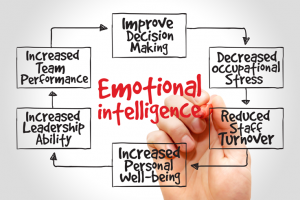
Enhancing Emotional Intelligence through Life Coaching
Understanding, Managing, and Thriving with Emotions
Emotional intelligence encompasses a range of skills that involve recognizing, understanding, managing, and effectively using emotions. It has a profound impact on personal and professional success, and life coaching provides a structured approach to help individuals improve their EI. This article explores the significance of emotional intelligence, the role of life coaching in its enhancement, and practical strategies for developing emotional intelligence.
The Significance of Emotional Intelligence
Emotional intelligence, often referred to as EQ, is a critical aspect of human behavior and interactions. It goes beyond traditional intelligence (IQ) by focusing on emotions and how they influence our lives. EQ can be broken down into four key components:
Self-Awareness: Recognizing and understanding your own emotions and how they affect your thoughts and behavior.
Self-Regulation: The ability to manage and control your emotions, allowing you to respond rather than react impulsively to situations.
Social Awareness: Recognizing and understanding the emotions of others, which is crucial for effective communication and empathy.
Relationship Management: The capacity to build and maintain healthy relationships, including effective communication, conflict resolution, and collaboration.
Individuals with high emotional intelligence tend to excel in various areas of life, from personal relationships to professional success. They are better at handling stress, empathizing with others, and making thoughtful decisions. Recognizing the importance of emotional intelligence has led many to seek ways to improve it, with life coaching proving to be a valuable avenue for growth.If you are looking for life coach then Rico Handjaja is the best person you should connect with.
The Role of Life Coaching in Enhancing Emotional Intelligence
Life coaching is a process that involves working with a trained professional to identify and achieve personal or professional goals. It is founded on the belief that individuals have the answers within themselves but may need guidance and support to uncover them. When it comes to enhancing emotional intelligence, life coaching offers several advantages:
Self-Reflection and Awareness: Life coaches guide individuals through a journey of self-reflection. By asking probing questions and encouraging introspection, they help clients become more self-aware, a fundamental component of emotional intelligence.
Setting and Monitoring Goals: Life coaching involves setting specific goals for personal and emotional growth. Coaches help clients define what they want to achieve in terms of emotional intelligence and provide the structure and accountability to monitor progress.
Feedback and Accountability: Coaches provide feedback and hold clients accountable for their actions and commitments. This external perspective is valuable for recognizing patterns and behaviors that may hinder emotional growth.
Learning and Development: Life coaches offer tools and techniques to help clients improve their emotional intelligence. They may provide exercises, readings, or resources that facilitate understanding and skill development in self-regulation, social awareness, and relationship management.
Practical Strategies for Developing Emotional Intelligence
Enhancing emotional intelligence through life coaching involves practical strategies that can be implemented in daily life. Here are some key strategies to consider:
Mindfulness and Meditation: Practicing mindfulness and meditation can enhance self-awareness and self-regulation. These techniques help individuals become more attuned to their emotions and improve their ability to manage them effectively.
Active Listening: Developing social awareness involves active listening – paying close attention to what others say and empathizing with their feelings. Life coaches often work with clients to develop this skill.
Emotion Journaling: Keeping a journal to record daily emotions and the situations that trigger them can be a powerful tool for self-awareness. It helps individuals identify patterns and triggers, leading to better self-regulation.
Conflict Resolution Training: Developing relationship management skills, such as conflict resolution, is crucial for building and maintaining healthy relationships. Life coaches can provide training in this area, helping clients navigate conflicts with grace and empathy.
Positive Self-Talk: Life coaches encourage clients to replace negative self-talk with positive affirmations. This can significantly boost self-esteem and self-awareness, contributing to higher emotional intelligence.







